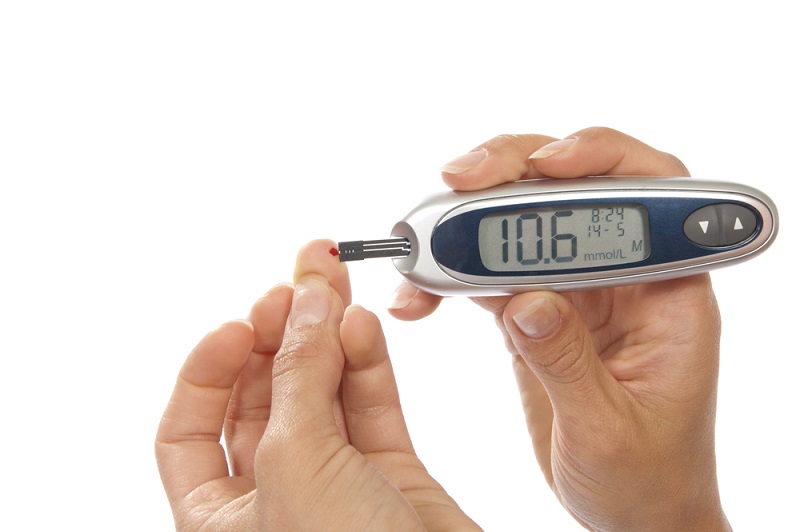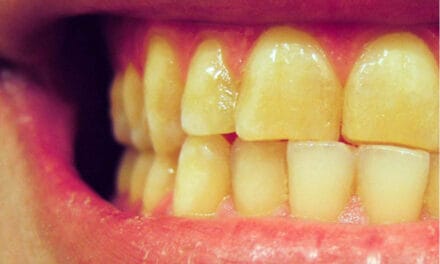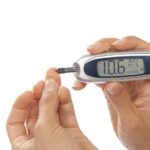Type 1 diabetes, an autoimmune disorder affecting millions of people across the globe, is a chronic condition that occurs when our pancreas doesn’t produce sufficient insulin hormone. This leads to a sugar build-up in the bloodstream.
What are the Causes and Symptoms of Type 1 Diabetes?
Usually, type 1 diabetes appears during childhood or adolescence, it can be developed in adults too. Factors like genes and some viruses are known contributors to it.
What are the causes of Type 1 diabetes?
There is a study going on to know about the exact cause of it. But this juvenile diabetes or insulin diabetes occurs when glucose is not able to enter cells to form energy. It happens when good cells (who fight bacteria and viruses) start destroying insulin-producing cells in the pancreas.
Role of insulin
Our body has so many organs that function differently. Insulin is a hormone produced by the pancreatic gland, whose function is –
- Insulin is been secreted from the pancreas to bloodstream circulations
- Which allows glucose (sugar) to enter cells to form energy.
- Insulin also lowers sugar levels in the bloodstream.
Role of glucose
- It is the main source of energy for muscles and other tissues.
- The food we eat goes through a process in which the liver forms glucose.
- Later absorbed into the bloodstream and enters in cells with insulin help.
- Glycogen is a form of glucose stored by the liver.
- During fasting or low glucose levels, our body breaks down the stored glycogen from the liver to keep glucose levels normal.
Other possible factors of type 1 diabetes –
- Genes
- Environmental factors like virus exposure
- Age
What are the Symptoms of Type 1 diabetes?
- Increased thirst
- Fatigue
- Unexpected weight loss
- Weakness
- Blurred vision
- Bed-wetting(in kids)
- Mood changes
- Irritability
- Extreme hunger
- Tiredness
- Skin infections
- Muscle loss
These are some common symptoms that can be seen in patients with type 1 diabetes. When it comes to the duration of developing type 1 diabetes symptoms –
- Kids and adults tend to develop it over a few weeks or days.
- In the case of untreated, it could lead to life-threatening.
- It can be developed at any age.
What are the complications of Type 1 diabetes?
It can affect major organs includes –
- Heart – it may increase various cardiovascular problems such as chest pain, heart attack, stroke, etc.
- Blood vessels – it may increase the risk of coronary artery disease such as high blood pressure, narrowing of arteries.
- Nerve damage – it is called neuropathy, in which high sugar levels can injure capillaries that nourish leg nerves. It can lead to tingling, numbness, burning, or pain.
- Kidney damage – it is also called nephropathy in which tiny blood vessels cluster blood waste. As diabetes is known to damage that filtering system, it could lead to kidney failure or any other kidney disease.
- Gastrointestinal tract – it can affect nerves of the GI tract and lead to nausea, vomiting, diarrhea and erectile dysfunction in men too.
- Eye damage – it is known to damage the vessels of the retina called diabetic retinopathy could lead to blindness, risk of cataract, and glaucoma.
- Foot damage – it can damage the blood flow in the feet of nerves, in case of blisters and cuts serious untreated infections could lead to amputation.
- Skin and mouth condition – people with diabetes are suspects of skin and mouth bacterial and fungal infections.
- Pregnancy complications – high blood sugar levels are risky for mother and baby as it increases the risk of miscarriage, birth defects and many pregnancy-induced conditions. While maintaining blood sugar levels can reduce the risk of many life-threatening complications.
Lastly
As there are no known ways to cure type 1 diabetes, there are studies going around the world for the prevention and treatment of it.
Due to the hectic schedule, sedentary lifestyle, and more importantly no time for physical activities and not giving proper attention towards one’s own health.
If you are seeing any symptoms of type 1 diabetes or have any queries related to it. You can ask the doctor and get medical advice.
FAQs – Causes and Symptoms of Type 1 Diabetes
What is type 1 diabetes and how do you get it?
- When insulin-making cells in the pancreas are destroyed by the body’s own immune system diabetes occurs.
- Insulin cells present in the pancreas are known as beta cells.
- This condition is thought to be caused by an autoimmune reaction.
- It may take months or years for any symptoms to appear.
Are you born with type 1 diabetes?
- As of now, researchers believe that genes play a major role in it.
- It passes through generations or families.
Is Type 1 diabetes curable?
- No, modern science is still working towards the cure of diabetes.
- People with diabetes need to stick to the treatment for the rest of their lives.
What causes diabetes type 1?
- Diabetes occurs when cells in the immune system started destroying cells that used to protect it.
- Others factors like lifestyle choices, genes & lifestyle factors are also responsible for it.
References –






















 English
English हिन्दी
हिन्दी








